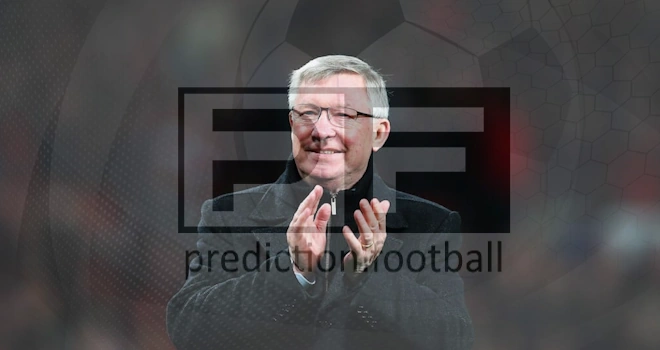Football managers shape tactics culture and success. Over decades some managers revolutionised the way football is played and how teams operate. These visionaries combined strategy motivation and innovation to leave a lasting legacy. In this article we look at ten of the most influential managers in the history of football and examine the impact each one had on the sport.
Sir Alex Ferguson Manchester United 1986 to 2013
Sir Alex Fergusons tenure at Manchester United from 1986 to 2013 was marked by unprecedented success. He led United to thirteen Premier League titles five FA Cups and two Champions League trophies. Ferguson had a knack for rebuilding squads across different eras and adapting tactics to stay ahead of rivals.
Beyond the silverware Ferguson was famed for youth development and man management. He promoted academy graduates into the first team and instilled a winning mentality. His methods influenced managers across England and inspired a winning culture that endured.
Rinus Michels Ajax and Netherlands 1971 to 1974
Rinus Michels pioneered the Total Football philosophy at Ajax and with the Netherlands national team in the early 1970s. He guided Ajax to a European Cup in 1971 and led the Dutch side to the 1974 World Cup final. His system required players to be versatile and to press aggressively.
Michels tactical approach reshaped modern football. Many of his ideas on fluid positioning and high intensity pressing became staples for future generations of coaches around the world.
Johan Cruyff Barcelona 1988 to 1996
Johan Cruyff built on the foundations of Total Football as manager of Barcelona from 1988 to 1996. He won four consecutive La Liga titles and delivered Barcelona their first European Cup in 1992. Cruyff emphasised possession technical skill and attacking flair.
His football academy model and playing philosophy created a blueprint for success. Cruyff’s ideas influenced Barcelona for decades and shaped modern football at youth and senior levels.
Arrigo Sacchi AC Milan 1987 to 1991
Arrigo Sacchi transformed AC Milan into a European powerhouse between 1987 and 1991. He introduced zonal marking and a compact high defensive line. Milan won back to back European Cups in 1989 and 1990 under his guidance.
Sacchi insisted on collective effort over individual brilliance and perfected team cohesion. His emphasis on organisation and pressing had a lasting effect on defensive tactics across Europe.
Pep Guardiola Barcelona 2008 to 2012
Pep Guardiola’s spell at Barcelona from 2008 to 2012 is widely regarded as one of the greatest managerial eras. He led the team to two Champions League trophies and three La Liga titles with a playing style known as tiki taka. His teams dominated possession and pressed relentlessly without the ball.
Guardiola refined tactical pressing positional play and ball circulation. His methods have been adopted by top clubs around the world and continue to influence modern coaches.
Helenio Herrera Inter Milan 1960 to 1968
Helenio Herrera earned the nickname Il Mago during his time at Inter Milan from 1960 to 1968. He perfected the catenaccio defensive system emphasising discipline organisation and swift counterattacks. Herrera’s Inter won three Serie A titles and two consecutive European Cups.
His focus on psychological preparation and fitness set new standards for professionalism. Herrera’s defensive blueprint remained a reference for coaches for decades.
Bill Shankly Liverpool 1959 to 1974
Bill Shankly revitalised Liverpool after taking charge in 1959. He promoted teamwork hard work and a strong bond between players and supporters. Shankly guided Liverpool from the Second Division to the First Division and won three league titles and two FA Cups by 1974.
Shankly’s emphasis on simple effective training and connection with fans became part of Liverpool’s identity. His legacy endures in the club’s philosophy and community values.
Vicente del Bosque Spain 2008 to 2012
Vicente del Bosque led Spain to their first World Cup victory in 2010 and retained the European Championship in 2012. His calm leadership and tactical flexibility allowed Spain to dominate with their possession based style. Del Bosque adapted his approach to get the best out of a star studded squad.
He also enjoyed success at Real Madrid winning two Champions League trophies before taking the Spain job. Del Bosque’s success on both club and international stage earned him widespread respect.
Carlo Ancelotti AC Milan and Real Madrid 2003 to 2015
Carlo Ancelotti won the Champions League three times between 2003 and 2014 with AC Milan and Real Madrid. His tenure spanned different football cultures and league styles. Ancelotti is known for his calm demeanour tactical flexibility and ability to manage star players.
Ancelotti’s capacity to adapt his tactics and man management style to different environments made him a model for success. His achievements across England Germany Italy and Spain underline his influence on modern football management.
Jose Mourinho Porto and Chelsea 2004 to 2007
Jose Mourinho burst onto the scene by winning the Champions League with Porto in 2004 before moving to Chelsea. Between 2004 and 2007 he claimed two Premier League titles with Chelsea playing a pragmatic defence first style. Mourinho’s tactical pragmatism and motivational skills earned him the nickname The Special One.
Mourinho’s approach to game management media handling and man management challenged traditional norms. His success across England Italy Spain and Portugal has inspired many coaches to blend tactical rigidity with psychological insight.

